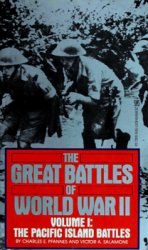The eight months' lull in fighting which followed was called
the 'phoney war'. It was no part of a German plan. Hitler ordered
a westward attack several times, but each time it had to be
postponed because of bad weather. The Allied armies remained
poised for action. They had organized a huge joint operation.
Great Britain used the extra time to equip a powerful expeditionary
force, to arrange delivery of aeroplanes ordered from the
United States, and to complete the field defences between the
end of the Maginot Line and the sea. The long period of inactivity,
howeyer, undermined the Allied troops' morale. It encouraged
the hope that Germany would not attack on the west
but would rather turn against Soviet Russia.
During the winter of 1939-1940, a Soyiet attack on Finland
provoked a wave of anti- Soviet feeling in France, and the Allies
discussed plans to rescue Finland. There was even a suggestion
to send planes from Syria on a bombing raid against the oil wells
in the Caucasus.
The inactivity troubled the most resolute leaders in England
and France, including Churchill and Paul Reynaud, who had
replaced Daladier as French prime minister in March 1940; but
they could not find a way of attacking Germany. Aside from a
frontal attack on the Siegfried line, the most direct route lay
across Belgium. Belgium was neutral, however, and had declared
her intention of remaining so.
Although the Belgians counted on Allied support against a
German invasion, King Leopold rebuffed every suggestion of
landing Allied troops. As the Allies were democratic countries
who had declared war in order to preserve human rights, they
could not violate Belgium's neutrahty.
Their only alternative was to make peripheral attacks. They
projected a Balkan expedition on the model of the Salonika
expedition of the First World War, but the Balkan states refused
to be drawn into the war, being certain that they would not be
supported il they were. The Allies' only success was Turkey's
half-hearted undertaking to oppose Italy.
Allied strategy therefore turned to Norway. Swedish iron,
which was vital to the German war industry, was shipped out of
Narvik during the winter when the Baltic Sea was iced over. If
(his iron supply line could be cut, German war potential would
be permanently debilitated. The British and French prepared
a joint expedition under British command, expecting the traditionally
pro- British Norwegian government to acquiesce after
going through the motions of a formal protest. But the plan
leaked out, and the Germans, who had earmarked Norway as a
base for air and submarine attacks on Britain, pre-empted the
Allies' move. They invaded Denmark and Norway on g April.
In Denmark they were completely successful; the Danish army
surrendered and the government submitted. In Norway military
resistance was more lively. What is more, despite the warm welcome
shown by Quisling and his supporters, King Haakon could
not be persuaded to yield to a German invasion. He fought on
for as long as he could and then retired to England. The Allies
were driven back from every landing point and only managed
to capture Narvik.




 World History
World History









